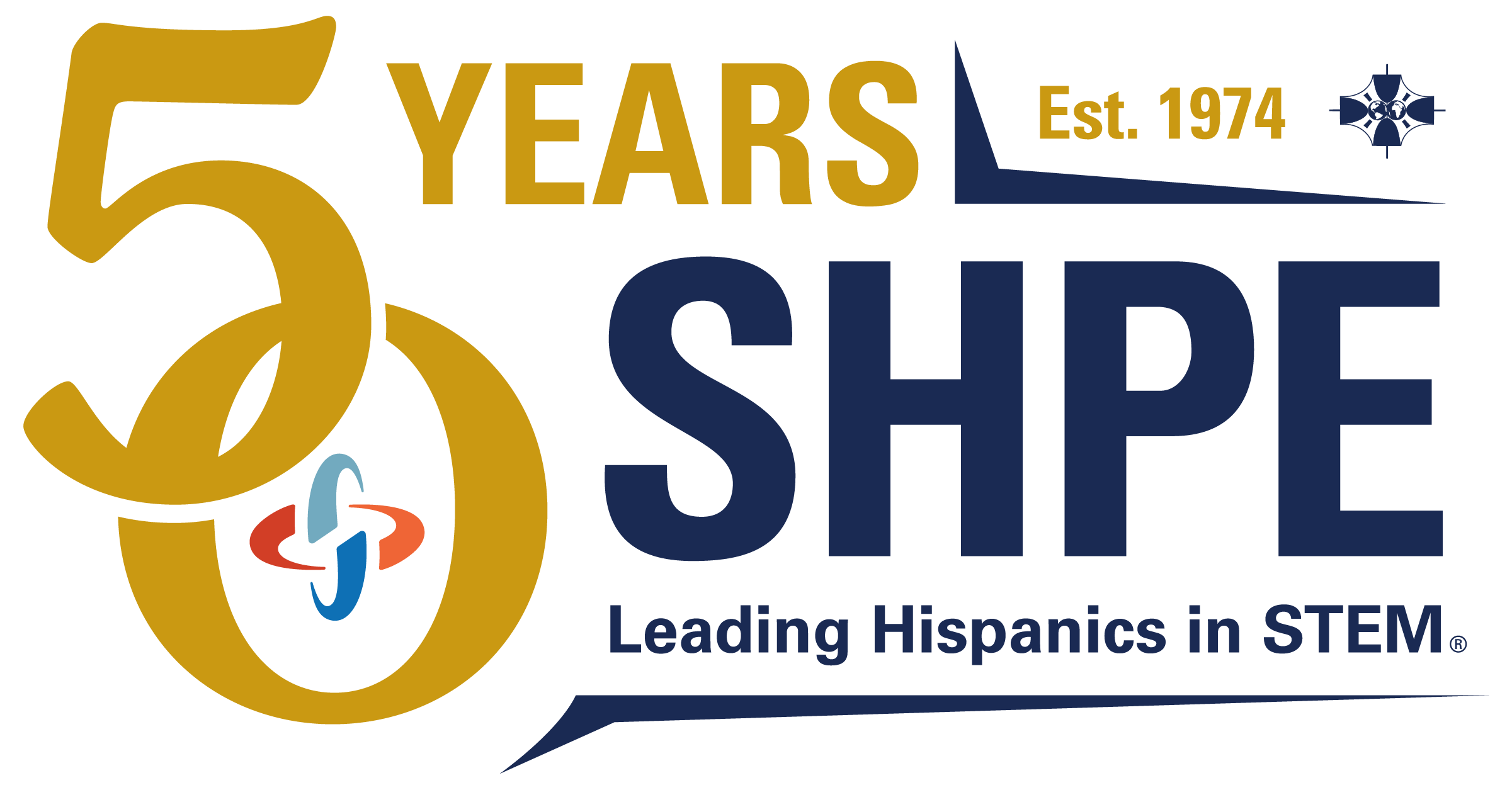The Office of Public Engagement Welcomes SHPE Members and Staff for an Exclusive Event at the White House on April 18
(City of Industry, CA) — On April 18, fifty SHPE members will join a handful of SHPE staff at a briefing on “Building the Next Generation of Hispanic Leaders in STEM” held by the Office of Public Engagement at the White House in Washington, DC and organized by SHPE’s Government Relations department.
The purpose of the briefing is to bring together Administration officials and SHPE representatives for a meaningful discussion of howacademia, the private sector, and government can meet labor needs, lower barriers, and increase representation, while constructing a sustainable education and domestic workforce pipeline of Hispanic students and professionals in STEM.
“In line with our new strategic plan, this prestigious event is a significant step towards achieving our goal of ‘being a key voice in Washington, D.C. with deep reach and a reputation as the leading organization for Hispanics in STEM’,” says interim CEO Miguel Alemañy. “The entire Familia should be proud to see SHPE with a seat at this table. It’s an indication of how far we’ve come in achieving Rod Garcia’s vision from 1974.”
The delegation from SHPE includes Hispanic students and young professionals who are pursuing a degree and career in various STEM disciplines, who are best able to recommend the most impactful types of support to help them complete their degree and feel like they belong in an industry that traditionally lacks Hispanic representation. Also joining the discussion are members of SHPE’s Academic and Industry Partnership Council members who are best able to highlight the value of building a diverse workforce in both private and public sectors.
SHPE representatives include:
Mariana Acuña Delgado
SHPE, Government Relations Senior Associate
Giana Aguilar-Valencia
DePaul University, Student
Miguel Alemañy
SHPE, Interim CEO
Angela Asfura
St. Mary’s University, Mechanical Engineering Student
Erik Jacob Barbosa
Georgia Institute of Technology, Student
Brendon Bolanos De Morales
The University of Texas at Arlington, Student
Christian Buenrostro
U.S. Bureau of Reclamation, Mechanical Engineer/ Project Manager
Victor Cervantes
University of Illinois Urbana Champaign, Associate Director MEP
Adrian Dávila
Virginia Tech, Ph.D. student in Materials Science and Engineering
Kimberly Douglas
SHPE, Chief Research & Innovation Officer
Axel Flores-Roman
IBM, Cloud Platform Partner Technical Specialist
Maira Garcia
Honeywell, Senior Advanced Systems Engineer/SHPE Program Manager
Juan Antonio Garcia
So Cal Carriers, Truck Driver
Luisa Imelda Garcia
Stay at home mom
Anthony Jacob Garcia
Los Altos HS, Student
Karen Joanna Garcia
Sparks Middle School, Student
Andrea Carolina Godoy
University of Miami, Student
Benjamin Gonzalez Vazquez
Bechtel Corporation, Pipe Stress Engineer
Julio Grapa
Procter & Gamble, Director Global Business Services
Raymond Guerrero
Ramapo College of New Jersey, Student
Kelvin Guzman-Baez
Rutgers University – New Brunswick, Student
Daniel Haros
Arizona State University, Master’s student/Energy Efficiency Specialist
Brenda Henriquez
George Mason University, Computer Science Graduate Student
Christopher Hernandez
UC San Francisco, Professor
Valeria Hernández Echegaray
University of Southern California, Student
Ashleigh Herrera
Tufts University, PhD Candidate
Monique Herrera
SHPE, Chief External Relations Officer
Robert Keynton
University of North Carolina at Charlotte, Dean, William States Lee College of Engineering
Yareni P. Lara-Rodríguez
University of Puerto Rico at Mayaguez, Doctoral Student
Xaymara Lasheras-Muniz
University of Puerto Rico – Ponce, Student
Andrea Lastra
Microsoft, Technical Support Engineer
Taylor B. Leonard
New Jersey Institute of Technology/Medtronic, Student/Business Process Analyst
Jorge Arturo Levario-Delagarza
University of Texas at Arlington/SpaceX, Starship Launch Engineering Intern
Andrea Lopez
The Boeing Company, Propulsion Engineer
Efren Lopez
University of Florida, Student
Dayna Martínez
SHPE, Research & Innovation Director
Rhonda McNeill
SHPE, Chief Administration Officer
Thelma Mendoza
University of Portland, Student
Juan Ocampo
St. Mary’s University, Associate Professor of Mechanical Engineering/Assistant Chair of Engineering
Ashley Orta
East Los Angeles College, Student
Lenin Paulino
United States Patent and Trademark Office, Patent Examiner
Miguel Payan
University of Oklahoma, McNair Scholar
Lance Pérez
University of Nebraska-Lincoln, Dean and Heins Professor of Electrical and Computer Engineering
Ala Qubbaj
The University of Texas Rio Grande Valley, Dean
Nora Rincon
General Motors, Program Quality Manager
Carlos Rivera-Camacho
University of Puerto Rico – Mayagüez, Student
Lesly Rojas Caloca
Oregon State University, Electrical and Computer Engineering Undergraduate
Guillermo Rullan
University of Puerto Rico – Mayagüez, Student
Giovanna Salazar
SHPE, Social Media Manager
Francis Samalot
The Boeing Company, Research Engineer
Jose Tabarez
The University of Texas Rio Grande Valley, Student
Nicolas A. Tempestini
SHPE, Board of Directors Member
Salena Torres
AccentCare, Inc., Transformation Program Director
Vicente Treviño
University of Colorado Boulder / Colorado Mesa University, Student
Emily Anne Vargas
University of Southern California/Oak Ridge National Laboratory, National Science Foundation Graduate Research Fellow
Idalis Villanueva
University of Florida, Associate Professor and Associate Chair for Research and Graduate Studies
Gerardo Zuniga
Medtronic, Sr Quality Systems Director
“Thank you to the entire SHPE Familia, staff, supporters, and partners for their dedication to SHPE that got us here and made this possible,” says Senior Associate of Government Relations at SHPE Mariana Acuna Delgado. “It’s only because of the achievements of SHPE members past and present who have proven the value of diversity in STEM that I was able to make this event happen. And thank you to the Office of Public Engagement at the White House for their ongoing commitment to diversity, equity, and inclusion in the workplace and for welcoming SHPE to DC.”
Check us out on social media on April 18 when we’ll be live tweeting from the White House! And stay tuned to SHPE Nation for pictures and updates from the event.
About SHPE
SHPE (Society of Hispanic Professional Engineers) is a nonprofit organization serving and advancing Hispanics in STEM. With more than 13,000 student and professional members, SHPE’s mission is to change lives by empowering the Hispanic community to realize its fullest potential and to impact the world through STEM awareness, access, support, and development. For more information, please visit https://www.shpe.org/
PDF Version >















